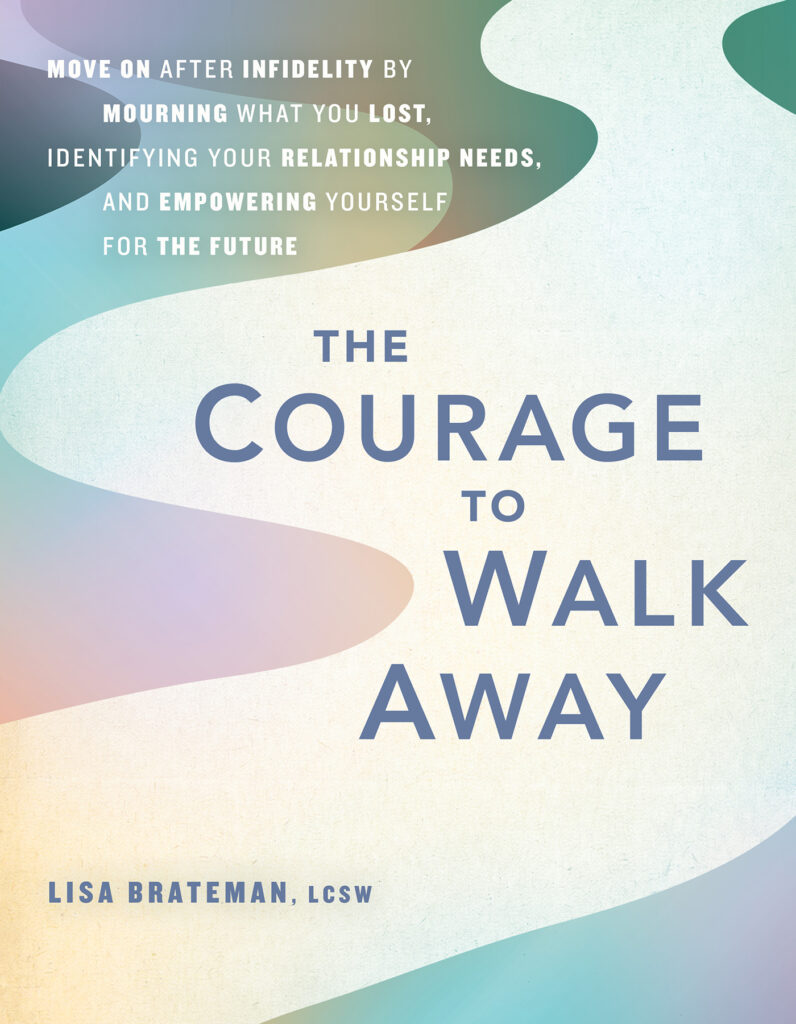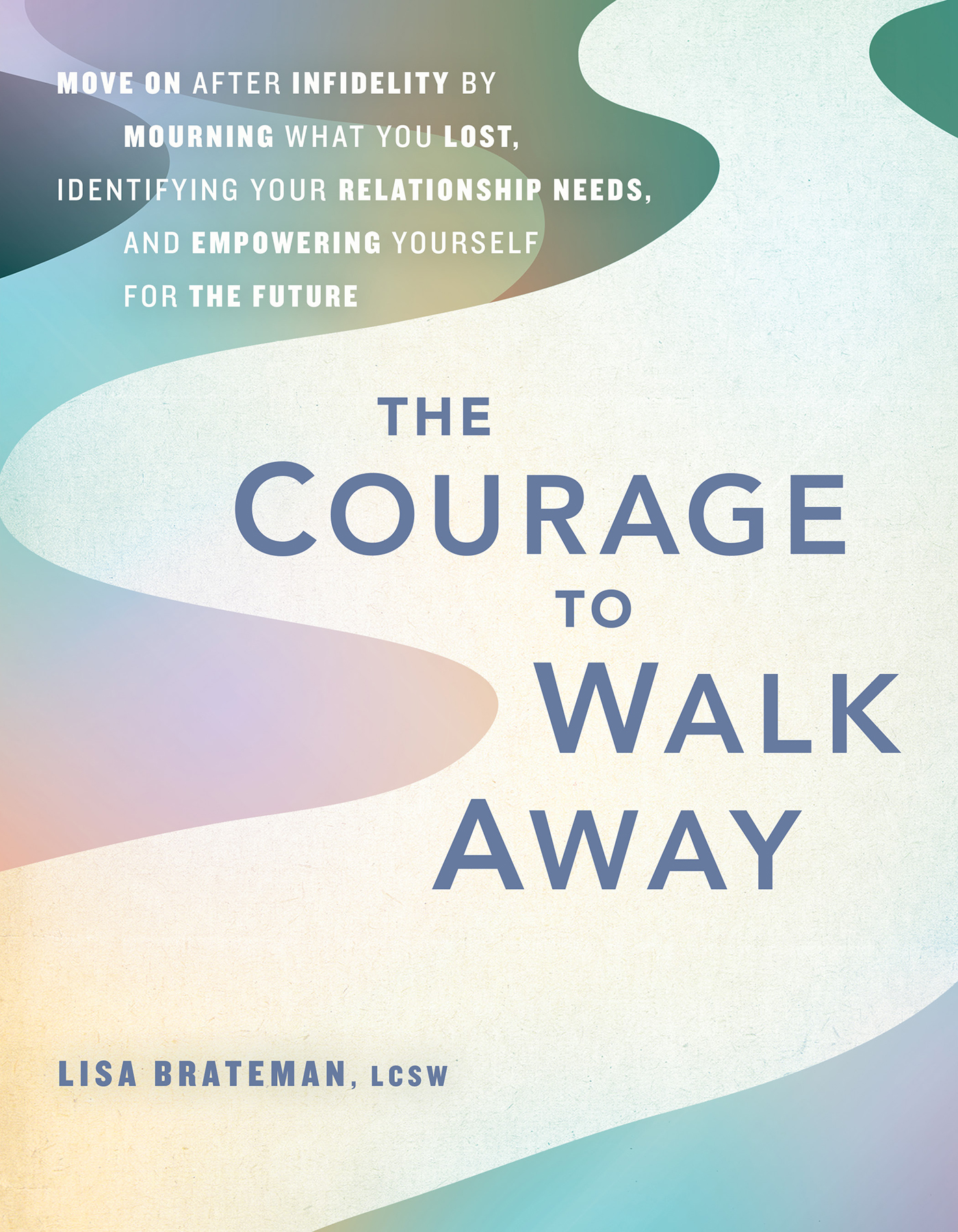
How to Recover from a Breakup: The Courage to Walk Away
- Book Sample /
- Self-Help
The process of breaking up and being left to deal with the aftermath can take a toll on you. Especially if the breakup involved infidelity, broken trust, and financial betrayal. But expert psychotherapist and relationship specialist Lisa Brateman, LCSW, has created a guided workbook on how to recover from a breakup. Through journaling prompts and helpful exercises, The Courage to Walk Away will help to heal and empower you for the future.
If you want to learn what comes next after infidelity and heartbreak, we have a sneak peek into the workbook!

How to Recover from a Breakup
There is life after betrayal.
If you are dealing with the aftermath of a painful and life-altering breakup—made worse by the emotional turmoil when trust has been breached and vows have been broken—you are not alone. You may already know that nearly 50 percent of all marriages in the US end in separation or divorce. Not all are caused by infidelity, of course, but that’s up there as one of the primary causes (or perhaps as the nail in the coffin of unhappiness). The figures are sobering. An estimated 41 percent of first marriages, 60 percent of second marriages, and 73 percent of third marriages in the US end in divorce. In fact, there is a divorce in this country every forty-two seconds—the time it likely took you to read this paragraph! And these statistics don’t include all the couples living together without being married.
Yet there is no reason for you to suffer when you can take steps toward a healing that you might not yet think to be possible.
The Fear of Loneliness
There is, of course, a vast difference between being alone (which can be emotionally satisfying) and being lonely (which is not). Some of the loneliest people I’ve ever met are couples who no longer feel comfortable with any kind of intimate behavior, yet they don’t know what to do about it. Your partner can be sitting next to you on the sofa, yet there is nothing about their presence that makes you feel cherished or supported. If this is the case, it can be a relief when the relationship ends.
There can also be hidden triggers for loneliness after a relationship ends. Seeing the closet and dresser drawers and garage empty can give you a huge jolt that leaves you feeling sad and lonely. Unexpected triggers can also sneak up on you.
There are many things to miss when a relationship ends, and they can make you feel lonely. But the more you do things on your own, the less jarring it will feel over time.
Fighting the Loneliness
If you’re feeling lonely, try to take steps to make yourself feel better. The longer you avoid doing anything proactive, the longer it can take to not feel so alone. Loneliness should not be discounted—it’s practically an epidemic in this country, and it can have serious health effects. In fact, in 2023 the National Institute on Aging released a study showing that the health risks of being isolated for a lengthy period of time are equivalent to smoking fifteen cigarettes a day.
To start, do something for yourself. Tell yourself “I deserve this”—because you do! And sometimes the best thing is to do something for someone else. Redirecting your attention to something out of your range of experience—whether it’s volunteering at an animal shelter or a hospital, or any kind of volunteering that brings you into contact with other people—will feel good. And don’t forget to set up regular check-ins with your friends.
If you are interested in the prompts and exercises in this chapter, don’t forget to pick up your copy of The Courage to Walk Away, which is out now!
The Courage to Walk Away
Discover how to successfully navigate the aftermath of a breakup or divorce caused by cheating, broken trust, financial betrayal, and more through journaling prompts and helpful exercises designed to heal and empower you for the future. The process of breaking up and its aftermath is always an emotional roller coaster, but it’s made much
Learn more






